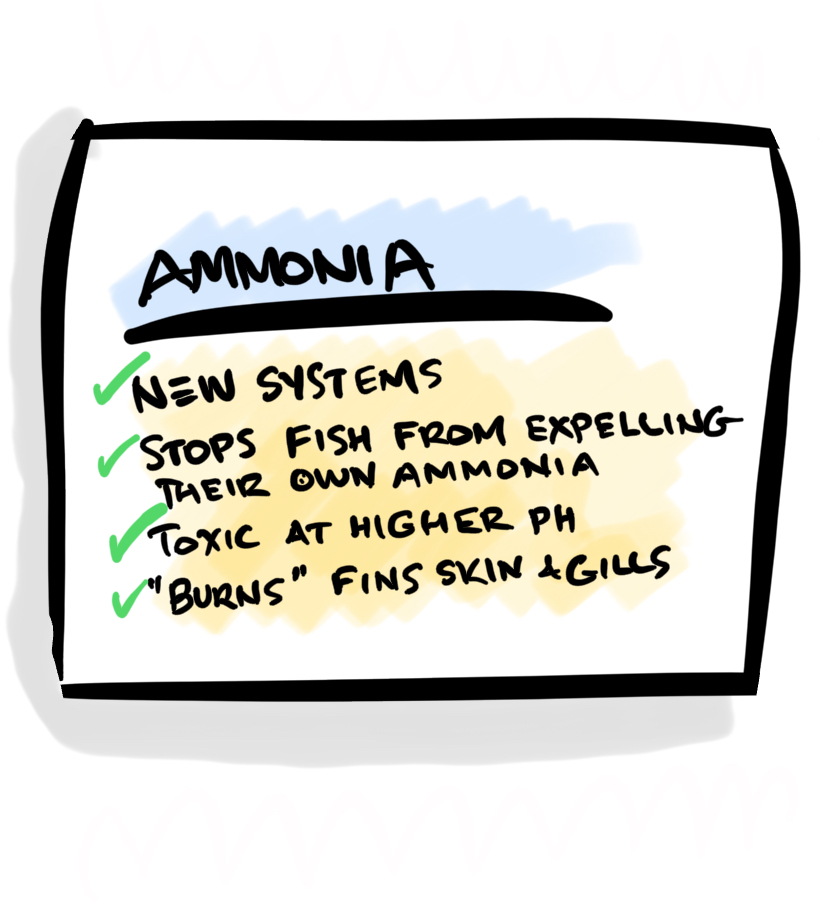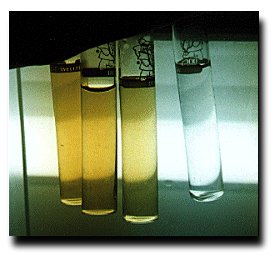Ammonia – The Essentials
Ammonia – Understand this! – by Doc Johnson
 Ammonia is the first waste product of your fish. It is often the cause of your first mortalities in new facilities and new ponds. There is a simple test to measure the levels. I am a big fan of Kent’s Ammonia Detox to reduce the toxicity of ammonia, and of BIOSEEDING
Ammonia is the first waste product of your fish. It is often the cause of your first mortalities in new facilities and new ponds. There is a simple test to measure the levels. I am a big fan of Kent’s Ammonia Detox to reduce the toxicity of ammonia, and of BIOSEEDING
- Made from rotting fish wastes/urine/food
- Tested with Nessler’s Drop Type tests
- After (the regrettable) addition of aldehydes such as Formalin or Ammonia-binder agents, test with Salicylate reagent tests.
- Ammonia causes redness of fins, general poor health, excess mucus production, flashing, and by chronic auto-intoxication: Pinecone disease.
- Ammonia is more toxic at pH above 8.0
- Ammonia is directly irritating to fish gills and tissues
- Ammonia is removed from the environment by beneficial bacteria called “Nitrosomonas”.
- You can control Ammonia with partial water changes or addition of Zeolites.
I discourage the use of chemicals for Ammonia binding. All but a few of them contain aldehydes (glutaraldehyde) which are guilty of binding oxygen and irritating the fish.
Wet dry filtration (versus submerged media) is very superior for supporting nitrifying bacteria.
Additional notes:
“First of all, because the test is foiled by fewer organic molecules, let’s establish that Salicylate test kits are superior to Nessler’s tests*. Still, Ammonia testing can present a problem. You may not know that dechlorinator can zero-out your ammonia test. The reason is that in the salicylate test kit, chloride ions provide a reagent. Ample dechlorinator and other ammonia binders will zero out this free chlorine reagent and show you a zero test. The only way to be sure that the Ammonia is truly bound up is by “live-tissue cell culture histopathology”. Cells are bathed in test-water and then examined for tell-tale signs of Ammonia damage. The only company that has done this so far is Aquarium Pharmaceuticals who used Drs Lukert and Gratzek at UGA. This Ammonia binder does not contain any aldehydes. Even the so-called “Sulfide Ion” binders are often nothing but Formaldehyde-bi-sulfite (rongalite) which is unstable.” Doc Johnson
*Nessler’s may be off the market now due to Mercury.






